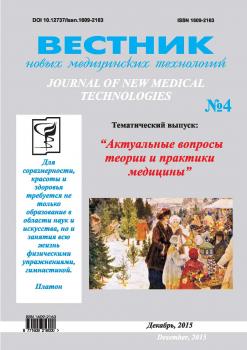The research of effective methods of treatment of broncho-obstructive diseases is one of the most important questions of the pediatric pulmonology. General clinical manifestations are characterized by attacks of breathlessness, prolonged exhalation, unproductive cough, whistling and noisy breathing sometimes with a help of auxiliary muscles. Often this disease leads to bronchial asthma, obstructive bronchitis, and malformations of the lung and bronchus. In the pathogenesis of bronchial obstruction whilst respiratory infections the main factors are inflammatory infiltration of the bronchial mucosa, its swelling, hypersecretion of viscous mucus and bronchospasm due to hyperactivity of the bronchi of the inflammatory nature. To diagnose this disease it is important to establish the presence or absence of the effectiveness of the protective mechanisms of the body at different hierarchic levels. To protect the respiratory tract from exposure to adverse environmental factors in the process of ontogenesis pro-tective mechanisms formed. The first stage of purification of the bronchial system is mucociliary clearance carried out by the cells of the ciliated epithelial cells and glands that produce bronchial secret. If the cause of the disease is established, the etiotropic and pathogenetic treatment of the underlying disease should be carried out. Of special interest in pediatric pulmonology is the experience of the combined drug Kashnol. It simultaneously affects almost all parts of the pathogenesis of acute and chronic broncho-pulmonary diseases.
broncho-obstructive diseases, therapy, pediatrics
1. Sovershenstvovanie terapii kashlya u detey / Geppe N.A., Seliverstova N.A., Beraia T.T. [i dr.]. Voprosy prakticheskoy pediatrii. 2009. № 4. S. 20-25.
2. Geppe N.A., Seliverstova N.A., Utyusheva M.G. Napravlenie sovershenstvovaniya terapii kashlya u detey. Voprosy prakt. pediatr. 2010. № 5. S. 89-92.
3. Kamenev L.I., Naumova E.N., Panova I.V., Khadartsev A.A., Krayukhin A.V. Matematicheskiy analiz otsenki effektivnosti vosstanovitel´nykh meropriyatiy u bol´nykh s bronkhoobstruktivnym sindromom. Fundamental´nye issledovaniya. 2005. № 6. S. 87-88.
4. Klyachkina I.L. Lechenie kashlya pri ostroy respiratornoy infektsii i grippe u patsientov gruppy riska. Formateka. 2010. N 5. S. 125-132.
5. Effektivnost´ i bezopasnost´ oral´noy formy sal´tbutamola (na primere preparata Askoril) vlechenii obostreniy bronkhial´noy astmy u detey / Meshcheryakov V.V., Sinevich O.Yu., Pavlinova E.B. [i dr.]. Pediatriya. 2003. № 6. S. 68-70.
6. Okovityy S.V., Anisimova N.A. Farmakologicheskie podkhody k protivokashlevoy terapii. RMZh Bolezni dykhatel´nykh putey. 2011.№23. S. 1450-1457.
7. Rovkina E.I. Effektivnost´ i bezopasnost´ otkharkivayushchego lekarstvennogo sredstva Askoril. Novye SPb vrachebn. vedom. 2000. № 4. S. 54-55.
8. Fedoseev G.B. Zinakova M.K. Rovkina E.I. Klinicheskie aspekty primeneniya Askorila v pul´monologicheskoy klinike. Novye SPb vrachebn. vedom. 2002. № 2. S. 64-67.
9. Fedoseev G.B., Orlova N.Yu., Shalyuga L.V. Primenenie preparata «Askoril» v ambulatornoy praktike. Novye SPb vrachebn. vedom. 2002. № 1. S. 68-70.
10. Ainapure S.S., Desai A., Korde K. Efficacy and safety of Ascoril in the management of cough - National Study Group report. J Indian Med Assoc 2001. Vol. 99. N 111. P. 114.
11. Jayaram S., Desai A. Efficacy and safety of As-coril expectorant and other cough fonnula in the treat-ment of cough management in paediatric and adult patients - a randomised double-blind comparative trial. J Indian Med Assoc. 2000. 98. P. 68-70.
12. Prabhu Shankar S., Chandrashekharan S., Bol-mall C.S., Baliga V. Efficacy, safety and tolerability of salbutamol | guaifenesin bromhexine (Ascoril) expectorant versus extorants cornammg salbutamol and either guaiphenesm or bromhexine in productive cough: a randomised controlled comparative study. J Indian Med Assoc. 2010. №10. P. 313-320.





